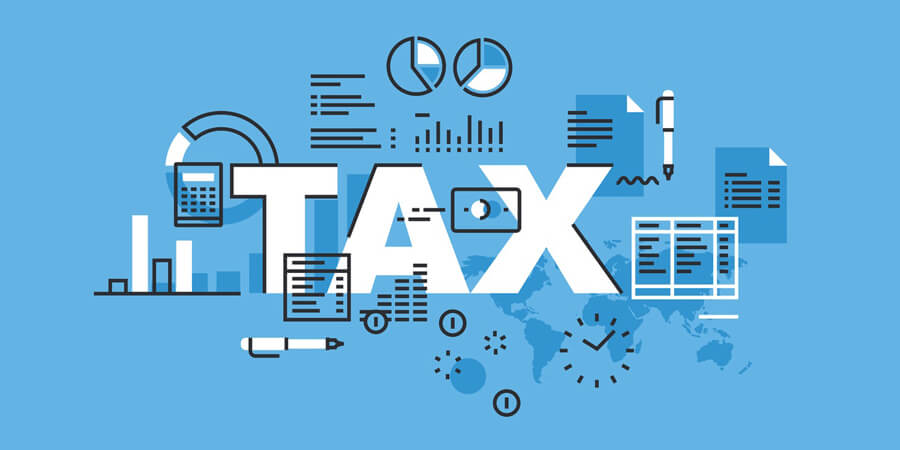ABSTRACT
The ‘Digital India’ Policy resulted in the digital taxation where digitalization of economy took place. It made the economy easily accessible and available. It helped the increase in the number of internet users and expansion of online business leading to the economic growth. However, there are various challenges in the digital sector. In this article lets us look into the impact of digital taxation on the economy, challenges and the legal measures adopted.
KEYWORDS: Digital Taxation, Indian Economy, Digitization
INTRODUCTION
Digital Taxation is those rules related to tax that will use the principles of good governance helping in the delivery of the digital services to the end users. It helps in the economic growth of the country. This involves the usage of various digital technologies which can be software or the tool that can be used in the online business services such as digital payments. Recently, the most revolutionary digital transformation is the indirect tax regime. With the digitization of direct and indirect tax systems, documentation of all the records became mandatory.
Digitization has enabled the multiple small business and entrepreneurs to establish the business due to the easier tax compliance procedures. This provides easier access to them so that any insights such as profits and loss they need in the future can be collected from them. With the more including of the newer technologies will enable the tax system to be resistance free, available and easy compliance by the tax payers.
IMPACT OF DIGITAL TAXATION ON INDIAN ECONOMY
The Digital taxation coming into picture ensures the easier online services like filing, paying taxes and keeps the track of payments, identify financial frauds and increase compliance with the tax system. Such initiatives enabled the transparency and user friendly taxation system. It will decrease the time that was required to file the tax returns, thereby focusing and giving time on the business. It helps increase the productivity and economic growth. It reduces the errors in tax filing process and increase accuracy. This will also reduce tax evasions and fraud, increasing the revenues for the government. It reduces the expenses in the process of tax compliance that makes it a win-win situation for both the tax payers and the government. This will increase the efficiency in the system.
BENEFITS OF DIGITAL TAXATION
With the indirect taxation in place through digitization, it has reduced the physical process and the online electronic filing of forms and returns. They have adopted technologies like cloud to ensure easy, accurate and faster tax compliance. The e-way bills will enable the movement of goods without much hassles of waiting in long queues and paperwork. The e-invoicing system provides the reporting mechanism along with the uploading of the invoices on the portal. It will increase the speed of data transfer. With the direct taxation, e-assessment helps in providing information to the tax officers in a quick and efficient manner. It has reduced the compliance burden and maintaining the records in an organized manner, eliminating the risk of loss and damage of files. It has reduced the corruption.
CHALLENGES IN DIGITAL TAXATION
Previously, tax policies were based on the physical location of the companies. But, the digital companies like Netflix, Google are earning revenues from India without have the offices physically located in India. As they do not meet the ‘permanent establishment’ criteria, they are taxed at low rates, though they are earning profits. Since the online business happen across the global borders, it is challenging to fix the actual jurisdiction for levying taxes.
LEGAL MEASURES ADOPTED
In 2016, Equalization Levy helped in combat the limitations present in taxing the offshore digital companies without permanent establishment in the country. Finance Act 2016 gave recommendations in the BEPS (Base Erosion and Profit Sharing) Action Plan. Finance Act 2018 introduced ‘Significant Economic Presence’ in the Income Tax Act under Section 9(1) (i) for taxing the non-residents who indulge in downloading the data or software in India if the aggregate of payments of transactions during the previous year exceeds the amount prescribed.
CONCLUSION
As the digital economy continues to expand, tax policies in India needs to evolve parallel. The modernization of tax processes such as faceless assessments and the introduction of Significant Economic Presence framework help in addressing the challenges of the digital economy. The reforms in the tax systems will ensure equal taxation that contributes fairly to the country’s tax revenues. The proactive measures by the State will ensure the easy tax compliance by the taxpayers in the era of digitization.
“PRIME LEGAL is a full-service law firm that has won a National Award and has more than 20 years of experience in an array of sectors and practice areas. Prime legal falls into the category of best law firm, best lawyer, best family lawyer, best divorce lawyer, best divorce law firm, best criminal lawyer, best criminal law firm, best consumer lawyer, best civil lawyer.”
WRITTEN BY: SOUJANYA V


